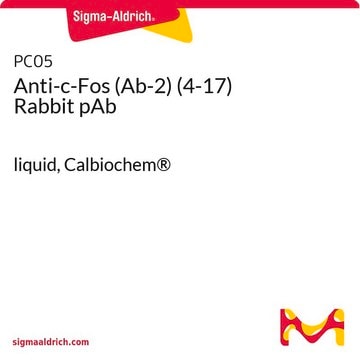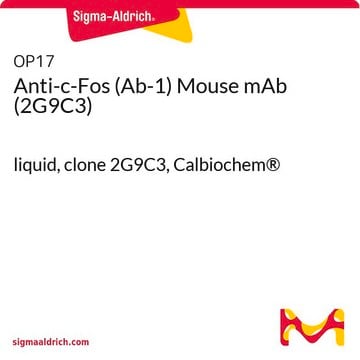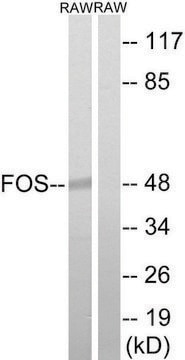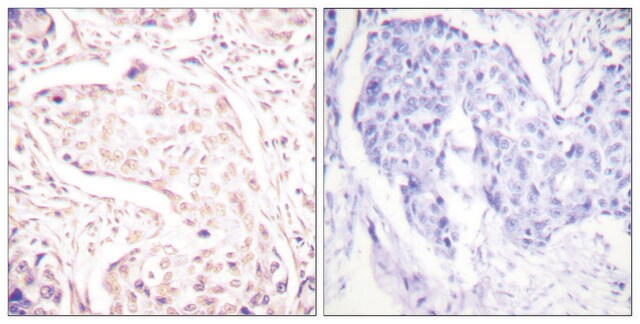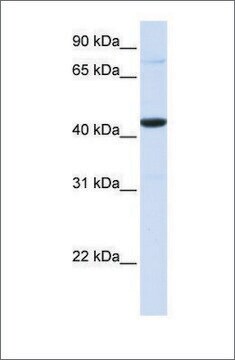ABE457
Anti-c-Fos Antibody
from rabbit, purified by affinity chromatography
Synonym(s):
Proto-oncogene c-Fos, Cellular oncogene fos, G0/G1 switch regulatory protein 7
About This Item
Recommended Products
biological source
rabbit
Quality Level
antibody form
affinity isolated antibody
antibody product type
primary antibodies
clone
polyclonal
purified by
affinity chromatography
species reactivity
human, rat
species reactivity (predicted by homology)
sheep (based on 100% sequence homology), mouse (based on 100% sequence homology), bovine (based on 100% sequence homology), rhesus macaque (based on 100% sequence homology), chimpanzee (based on 100% sequence homology), porcine (based on 100% sequence homology)
technique(s)
immunohistochemistry: suitable (paraffin)
western blot: suitable
NCBI accession no.
UniProt accession no.
shipped in
wet ice
target post-translational modification
unmodified
Gene Information
human ... FOS(2353)
General description
Specificity
Immunogen
application
Immunofluorescence Analysis: A representative lot detected c-Fos in rat pons and rat cerebellum tissues.
Quality
Western Blot Analysis: 0.5 µg/mL of this antibody detected c-Fos in 10 µg of PMA(TPA) treated HeLa cell lysate.
Target description
Analysis Note
PMA(TPA) treated HeLa cell lysate
Other Notes
Not finding the right product?
Try our Product Selector Tool.
comparable product
Storage Class
12 - Non Combustible Liquids
wgk_germany
WGK 1
flash_point_f
Not applicable
flash_point_c
Not applicable
Certificates of Analysis (COA)
Search for Certificates of Analysis (COA) by entering the products Lot/Batch Number. Lot and Batch Numbers can be found on a product’s label following the words ‘Lot’ or ‘Batch’.
Already Own This Product?
Find documentation for the products that you have recently purchased in the Document Library.
Customers Also Viewed
Our team of scientists has experience in all areas of research including Life Science, Material Science, Chemical Synthesis, Chromatography, Analytical and many others.
Contact Technical Service



